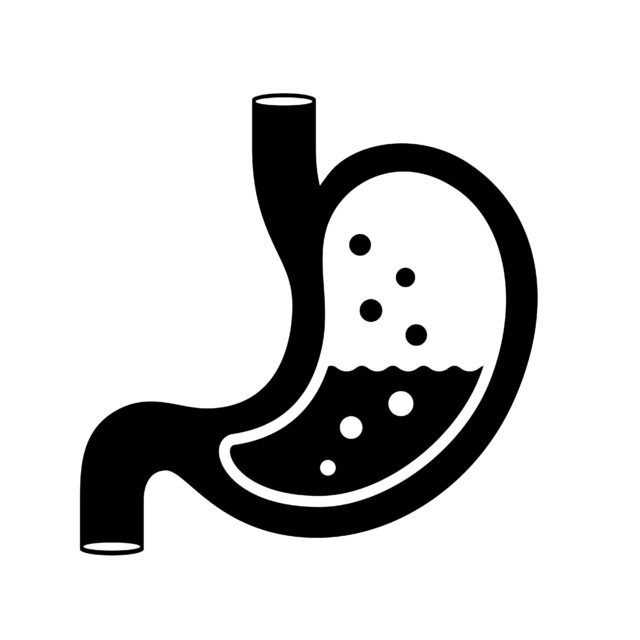The holidays are fast approaching, with Halloween only a little over a month away, so begins the true challenges of a nutritional diet; therefore, we need to remember our good friends, enzymes, for holiday meals.
Holiday weight gain is a problem not just exclusive to America, but around the world, starting in October. The holidays make it hard to deny ourselves the foods we want to eat vs. the foods we need to eat. With an excess of sugary snacks and assorted candies thrown in your face everywhere you turn this time of year, it’s hard to deny that excessive eating becomes tempting. Then Thanksgiving and Christmas are right around the corner.
It is that time of the year where we allow ourselves to over-indulge before we make our New Year’s Resolutions.
On top of all the delicious holiday food choices, the weather is becoming colder, giving us an excuse to avoid regular walks outside. Not to mention, we tend to overeat in social situations, where there are large quantities of food available to guest.
Some statistics even suggest that the six weeks that count as the holiday season contributes to 75% of the total annual weight gain, with 1.3 Lbs gained per person.
What can we do to keep our holiday weight-gain in check even though we cannot help ourselves from relishing in all the tasty food options?
Enzymes are Key to Avoiding Holiday Weight Gain
You read correctly. One way to combat digestive discomfort, and the accompanying undesired symptoms, is by incorporating digestive enzymes into your holiday equation.
So what are enzymes, and what do they do?
Enzymes are the sparks that start the essential chemical reactions our bodies need to break down food in a healthy fashion. And digestive enzymes have many functions relevant to weight loss. Specifically, they break down food into its component parts, allowing the desirable nutrients to be absorbed, which in turn speeds up the metabolic rate of our endocrine system. The higher our metabolic rate, the faster we burn calories, especially from fat. Undigested food can form blockages in the digestive system, slowing elimination and promoting toxic build-up, according to Dale Kiefer of “Life Extension Magazine.”
Your body needs a number of essential nutrients just to keep your systems functioning properly. You get these essential nutrients from the foods you eat and the water that you drink; all of which gets broken down, absorbed and transported through your bloodstream. Enzymes work to break the nutrients down so that your body can absorb them and reap their rewards. When you aren’t getting sufficient enzymes, this slows the entire process – which can lead to the problems that we just talked about.
If you’re wondering whether or not your body is supplying a sufficient amount of enzymes, consider that over time, your body’s ability to produce enzymes slows down considerably. So, chances are you could use a digestive enzyme supplement in your diet.
Antacids are not the same as enzymes. Antacids are merely made to fight things such as heartburn and indigestion; however, they do not promote the digestion of food or the absorption of nutrients. What’s more, over-loading on antacids can have serious side effects which may include: high blood pressure; breakdown of the mineral balance of the body; risk of kidney malfunction; and increased incidence of urinary tract infections.
These Enzymes Help With Healthy Digestion
If you are going to indulge this holiday season, indulge with purpose. Here are the enzymes that should be on your radar to improve digestion while avoiding indigestion, constipation, diarrhea, bloating, gas, fatigue, and breaks down fat:
- Lipase – breaks down lipids and improves fat utilization
- Amylase – breaks down carbohydrates, including starch and glycogen
- Protease – breaks down protein
- Lactase – breaks down milk sugar
- Maltase – breaks down carbohydrates, malt, and grain sugars
- Invertase – breaks down carbohydrates, especially sucrose and maltose
- Hemilase – breaks down carbohydrates
- Cellulase – breaks down cellulose and chitin (cell wall fibers in food and toxins)
Enzyme Foods, Gifts that Keep On Giving
When you find yourself at holiday parties, scout out the raw fruit and veggie platters, as many naturally occurring digestive enzymes are found in these two food groups. According to Jonny Bowden, author of “The 150 Healthiest Foods on Earth,” papayas and pineapples are the two of the best sources of digestive enzymes. Other great fruit choices include mangos, watermelon, blueberries, raspberries, apples, figs, pears, and cherries. Leafy, green vegetables double as a source of naturally occurring digestive enzymes, as do bell peppers and tomatoes. If you want to be extra prepared, there are several supplements on the market with high-quality ingredients to choose from. There are many comprehensive digestive supplements that can be found online or in health food stores.
In Conclusion…
Today we discussed:
- Holiday weight gain and how it affects the world
- Enzymes, what they are and what they do to help shed weight
- The different types of natural enzymes, and their specific function in our digestive system
- The various foods rich in enzymes that would be better substitutes than calorie-heavy, seasonal platters
With this tip in mind, and these enzymes, you’ll be able to handle any holiday weight gain. As for holiday stress, that’s a topic for another blog entry.
Insider’s Health Exclusive –>>: Click Here to Find out The ONE “Weird Trick” that reduces your terminal disease risk by OVER 70% (and NONE of us are doing it)









